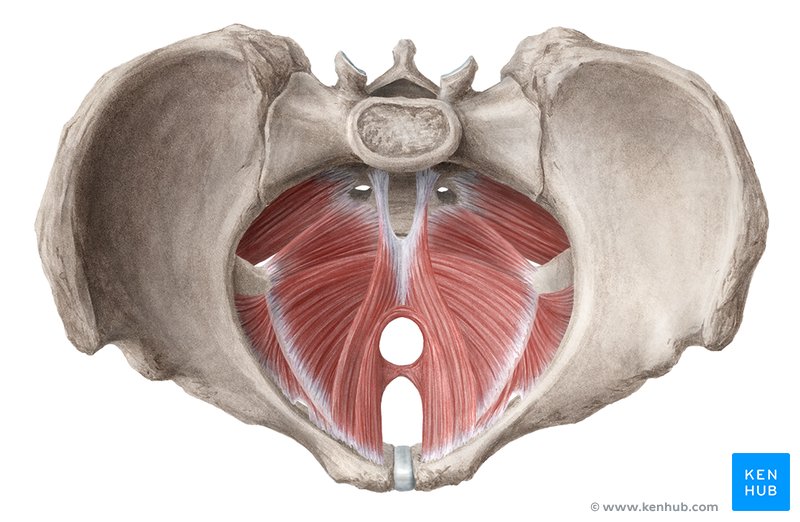The Crucial of a Healthy Pelvic Floor at Vancouver Physiotherapy Hub
In a city as health-focused as Vancouver, where residents are always on the move, maintaining a healthy pelvic floor is crucial. A well-functioning pelvic floor supports your overall health, while an unhealthy one can lead to a host of issues, such as incontinence, pelvic pain, sexual dysfunction, and lower back pain, affecting your daily life and activities. In this blog post, we review just how important a strong and healthy pelvic floor is to your body’s function.
The Pelvic Floor: Understanding Its Function
The pelvic floor is a group of muscles, ligaments, and tissues that form a hammock-like structure across the bottom of your pelvis. These muscles play a vital role in supporting the organs within the pelvis, including the bladder, intestines, and for women, the uterus. The pelvic floor muscles work in coordination with the abdominal and back muscles to provide stability and support to the spine and pelvis.
At a more detailed level, the pelvic floor muscles are composed of two types of fibers: slow-twitch and fast-twitch. Slow-twitch fibers provide continuous support for the pelvic organs, while fast-twitch fibers are activated during sudden increases in abdominal pressure, such as coughing, sneezing, or lifting heavy objects. This intricate system is controlled by the somatic and autonomic nervous systems, ensuring both voluntary and involuntary muscle contractions.

How Your Pelvic Floor Supports Your Body
It Supports Your Pelvic Organs
The pelvic floor muscles act as a supportive sling for your pelvic organs. This support is crucial for maintaining the proper function and position of these organs. Without adequate support, conditions such as pelvic organ prolapse can occur, where organs like the bladder or uterus drop and press against your internal walls, causing discomfort and functional problems.
It Controls Your Bladder & Bowels
One of the primary functions of the pelvic floor is to control the release of urine and feces. The muscles contract to close the urethra and anus, preventing leakage. Conversely, they relax to allow for urination and bowel movements. Dysfunction in these muscles can lead to incontinence, a common issue that studies have shown can significantly impact quality of life.
It Is Crucial in Childbirth
For women, the pelvic floor plays a crucial role during childbirth. The muscles stretch and contract to accommodate the passage of the baby through the birth canal. A strong and flexible pelvic floor can help reduce labor duration and decrease the risk of tearing. Postpartum, these muscles need to recover and regain strength to prevent long-term complications.
It Enhances Your Sex Life
The pelvic floor muscles are also involved in sexual function. In men, they contribute to erectile function and ejaculation, while in women, they help with arousal and orgasm. Strong pelvic floor muscles can enhance sexual sensation and satisfaction, whereas weakness or dysfunction can lead to issues such as erectile dysfunction or pain during intercourse.
It Is Essential for Core Stability
The pelvic floor is an integral part of the body’s core, working in tandem with the diaphragm, abdominal muscles, and back muscles to provide stability. This support is essential for maintaining posture, balance, and proper movement mechanics. Weakness in the pelvic floor can lead to poor core stability, contributing to lower back pain and other musculoskeletal issues.
It Manages Abdominal Pressure
The pelvic floor helps manage intra-abdominal pressure during activities such as lifting, coughing, or sneezing. Proper coordination of these muscles prevents undue strain on the pelvic organs and supports overall functional movement. Dysfunction can lead to issues like hernias or urinary incontinence due to the inability to manage pressure effectively.
It Promotes Healthy Digestion
The pelvic floor muscles assist in maintaining the position and function of the intestines. Proper muscle tone and coordination help facilitate efficient bowel movements and prevent issues such as constipation and bowel incontinence. By supporting digestive health, a well-functioning pelvic floor contributes to overall gastrointestinal wellbeing.It Aids in Circulatory Health
The pelvic floor muscles play a role in promoting healthy blood flow within the pelvis and lower limbs. Proper muscle tone and activity can help prevent venous pooling and reduce the risk of conditions such as varicose veins and deep vein thrombosis. Good circulation is essential for maintaining overall cardiovascular health and preventing complications related to poor blood flow.
What is Pelvic Floor Physiotherapy?
Pelvic floor physiotherapy is a specialized area of physiotherapy focused on assessing and treating dysfunctions of the pelvic floor. Our expert physiotherapists at Vancouver Physiotherapy Hub have extensive training and experience in this field. They use a variety of techniques, including manual therapy, biofeedback, IMS and personalized exercise programs, to help strengthen and rehabilitate the pelvic floor muscles.

An Appointment with Our Pelvic Floor Physiotherapists
When you schedule an appointment with our pelvic floor physiotherapists, you can expect a comprehensive and personalized approach to your care.
Assessment
Your initial assessment will involve a detailed history taking and physical examination. This may include an internal exam, conducted with your consent and comfort as the utmost priority. The internal exam helps our physiotherapists assess muscle tone, strength, and function, providing crucial information for your treatment plan.
Treatment
Based on the assessment, your physiotherapist will develop a tailored treatment. This may include manual therapy to address muscle tightness, IMS, stretching, and breathwork to enhance muscle awareness, and specific exercises to improve strength and coordination.
Treatment Plan and Homecare
Your treatment plan will be designed to fit your unique needs and goals. We provide education on lifestyle modifications and home exercises to support your recovery and prevent future issues. Regular follow-ups ensure that your progress is monitored and your plan is adjusted as needed.
We understand that pelvic floor physiotherapy can be a sensitive and personal area of treatment. Our team is committed to creating a safe, respectful, and comfortable environment for all our patients. Consent and comfort are prioritized throughout the entire process.
FAQs
What does a pelvic floor exam consist of?
A pelvic floor exam may include an internal and external assessment of the pelvic muscles. This helps the physiotherapist evaluate muscle tone, strength, and function. The internal exam is only performed with your consent and comfort.
How painful is pelvic floor physiotherapy?
Pelvic floor physiotherapy should not be painful. Some discomfort may be experienced during manual therapy or exercises, but your physiotherapist will work with you to ensure you remain comfortable.
Is it ever too late for pelvic floor therapy?
It is never too late to benefit from pelvic floor therapy. Whether you are experiencing symptoms now or want to prevent future issues, pelvic floor physiotherapy can be tailored to your needs at any stage of life.
How to tell if pelvic floor is tight or weak?
Symptoms of a tight pelvic floor may include pain, difficulty emptying the bladder or bowels, and discomfort during intercourse. Weak pelvic floor muscles may lead to incontinence, pelvic organ prolapse, or a feeling of heaviness in the pelvic area. A physiotherapist can perform an assessment to determine the state of your pelvic floor.What should I wear to pelvic floor physiotherapy?
Wear comfortable clothing that allows for easy movement. You may be asked to undress from the waist down for an internal exam, but your comfort and privacy will always be maintained.
Vancouver Physiotherapy Hub: Your Best Choice for Pelvic Floor Physiotherapy
At Vancouver Physiotherapy Hub, we pride ourselves on offering exceptional care for pelvic floor health. Our experienced physiotherapists are dedicated to helping you achieve optimal function and wellbeing. Whether you are dealing with specific symptoms or looking to maintain a healthy pelvic floor, we are here to support you every step of the way.






